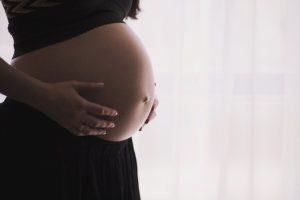 On January 24, 2020, the U.S. Department of State published a new rule in the Federal Register banning “birth tourism,” effective immediately.
On January 24, 2020, the U.S. Department of State published a new rule in the Federal Register banning “birth tourism,” effective immediately.
Previously, B-1/B-2 visitor visas allowed foreign visitors to visit the United States for business or pleasure, including tourism, social visits, or receiving medical treatment in the U.S. The new rule revises the definition of the term “pleasure” for tourist visas in the Immigration and Nationality Act to specifically exclude “obtaining a visa for the primary purpose of obtaining U.S. citizenship for a child by giving birth in the United States.” If the consular officer reviewing a woman’s visa application has “reason to believe” the applicant will give birth in the United States, the officer by law must presume that the primary purpose of the woman’s visit is to obtain U.S. citizenship for her unborn child.
Visa applicants will have the burden to disprove this presumption to receive a visitor visa. Showing that the applicant is seeking medical treatment in the U.S. for a complicated pregnancy is listed by the State Department as one way the presumption may be overcome, but even this does not guarantee that a visa will be issued in all cases.
The new rule also changes the regulations for obtaining a US visitor visa to obtain medical treatment in the United States. Visa applicants will now be required to present documentation that a health care provider (hospital or doctor) has agreed to provide the treatment and that the applicant has the means, derived from lawful sources, to pay all medical expenses and incidental expenses in the United States. “Incidental expenses” include all transportation and living expenses during the visit, paid independently or with the pre-arranged assistance of others.
What is “Birth Tourism”?
The Fourteenth Amendment to the U.S. Constitution guarantees that “[a]ll persons born or naturalized in the United States, and subject to the jurisdiction thereof, are citizens of the United States and of the state wherein they reside.” In recent years, a “birth tourism” industry has developed to facilitate foreign mothers to come to the United States to give birth, specifically so that their U.S.-born children are entitled to U.S. citizenship and the accompanying benefits. Companies involved in this industry touted benefits to having children in the U.S. including free education, better quality of life, and the ability to petition for permanent residence for the parents and siblings of U.S. citizens. The State Department cited concerns of fraud, international criminal activity, and threats to national security associated with the “birth tourism” industry in implementing this new rule.
How Can a Pregnant Visa Applicant Overcome the Presumption of “Birth Tourism” Intent?
 As this rule has just been created, it remains to be seen how consular officials will interpret and implement it. The State Department has outlined several example scenarios of how visa applicants might rebut the presumption that their travel to the U.S. is for “birth tourism” purposes if a consular officer has reason to believe they will give birth in the United States. It is important to remember that the burden of proof is on the applicant to prove her visa eligibility, and evidence must be provided to meet that burden.
As this rule has just been created, it remains to be seen how consular officials will interpret and implement it. The State Department has outlined several example scenarios of how visa applicants might rebut the presumption that their travel to the U.S. is for “birth tourism” purposes if a consular officer has reason to believe they will give birth in the United States. It is important to remember that the burden of proof is on the applicant to prove her visa eligibility, and evidence must be provided to meet that burden.
One example provided by the State Department involves a pregnant B visa applicant “from a part of Mexico lacking appropriate medical facilities who arranged a birth plan in the United States based on proximity to her residence in Mexico.” The Department states that this evidence would rebut the presumption of birth tourism. The rule also clarifies that a visa applicant who can present “a birth plan in the United States based on specialized medical care for a complicated pregnancy” could potentially rebut the presumption. While not specified in the rule, the applicant’s birth plan should document the reasons that the specialized medical care planned in the United States is not available in the applicant’s home country or elsewhere.
Another example scenario provided in the new rule that could rebut the presumption of “birth tourism” is one where the pregnant visa applicant can prove to the consular office the alternative primary purpose of her visit to the United States is “to visit her dying mother, and that during the visit she may give birth in the United States because her due date overlapped with her mother’s last expected months of life.”
The final example provided by the State Department in the new rule involves a pregnant visa applicant who can prove to the consular officer that the child who would be born in the United States during the visitor’s stay would already become a U.S. citizen by law through a qualifying U.S. citizen father, based on Title 8 of the U.S. Code, Section 1401(g).
Considerations for Women Visiting the U.S. and Applying for Visas
Importantly, this new rule does not change U.S. Department of Homeland Security regulations, including eligibility for travel through the Visa Waiver Program or entering the United States on a valid visitor visa previously issued. Nor does the rule change the law as to inadmissibility of aliens to the U.S.
According to the revisions to the Foreign Affairs Manual (9 FAM 402.2-4(A)) since the new rule was published, U.S. consular officers are instructed that they “must not ask a visa applicant whether they are pregnant” unless the officer has “a specific articulable reason to believe [the applicant] may be pregnant and planning to give birth in the United States.” Per the FAM revisions, consular officers are not allowed to ask all female visa applicants (or a subset of all female visa applicants) whether they are pregnant or intend to become pregnant.
U.S. B-1/B-2 visas can be issued for up to 10 years of validity and allow visits up to six months in length, which visitors may apply to extend up to one year once the visitor is in the United States. Given the new rule, women of childbearing age who intend to visit the United States in the future will need to consider the timing of any U.S. B-1/B-2 visa applications. The B-1/B-2 visa application process can take anywhere from a few days to a few months to complete.
Pregnant women who are seeking B-1/B-2 visas will need to present substantial evidence to overcome the presumption of “birth tourist” intent and meet the requirements of the new rule to ensure they receive a visa.
Attorney Joseph Alain Moro helps individuals navigate the U.S. visa application process. For more information and to schedule an attorney consultation, please contact our office.